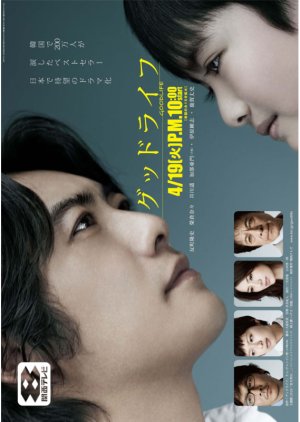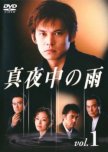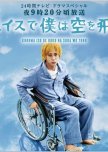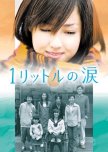
Having spent the better part of the series sobbing, I will attest that this is a tear-jerker. Stories that deal with severe illnesses often are. Refreshingly Good Life avoids becoming maudlin and though tears well up, they don’t always spring from tragedy. I found myself most moved by the powerful relationship between Waku and his father; the change love brought into their lives at the most crucial hour…this is more important than anything else. The short length of the drama guarantees a sharp focus on their journey. There’s just no time for romantic detours or melodramatic spoons dipped in to stir extra conflict. (As a side note, Waku’s adorable yet illuminating narrations were fantastic; their presence bolstered the emotional atmosphere of the plot exponentially.)
Only two performers stand memorable, which works since Good Life focused almost solely on their characters. Sorimachi Takashi tugs insistently at the heartstrings as Daichi Sawamoto, the “papa” of the title. His character brought to mind the imagery of a trembling pillar; Daichi tries to take everything on his own shoulders, never letting anyone else see his deep vulnerability. As a result, he appears strong but aloof – blindly unable to understand that his life is lacking. Transformation from such a person into the gentle and loving father whose heart finally opens is conveyed compellingly, both by the writing and Sorimachi. On the other hand we have Kabe Amon, who played impressively as Waku. Not only is he super cute, he’s startlingly believable. It was easy to forget Kabe is healthy in real life and that Sorimachi is not actually his father (despite their immense chemistry).
Music is fittingly simple and nostalgic. Unfortunately, the soundtrack soon feels repetitive by the halfway point. A specific piano melody manages to stick in my mind, as well as the tender “Mata Ashita,” by JUJU.
Cet avis était-il utile?
Cet avis était-il utile?




































